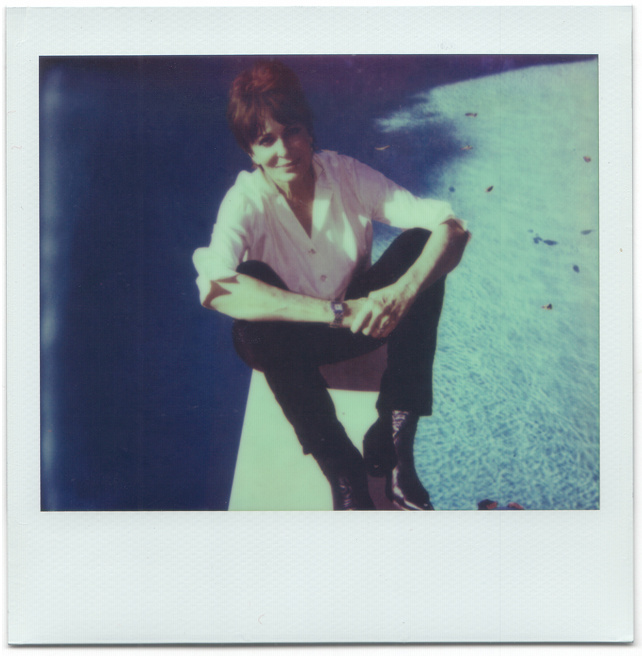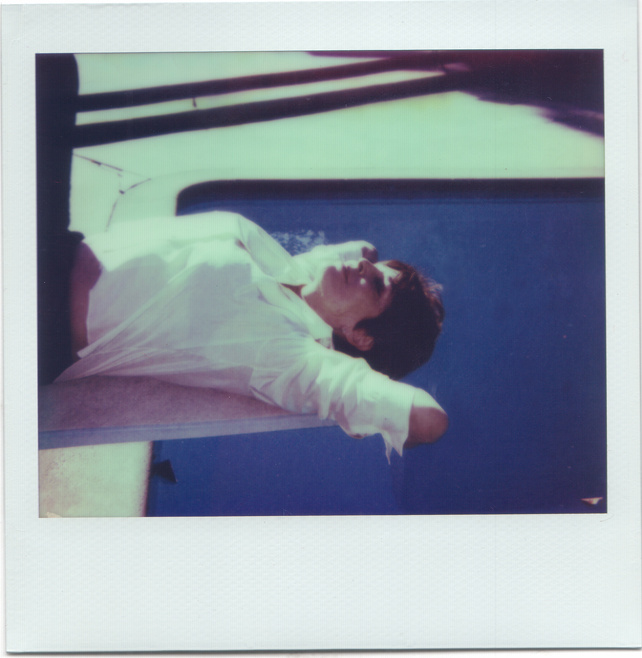
Actor
Blade Runner (1982), Under Fire (1982), Don’t Tell Mom the Babysitter’s Dead (1991), Six Feet Under (2001), Body of Proof (2013)Statuesque and confident, Joanna Cassidy has built a career out of playing highly competent women who are usually well-paid professionals, unmarried, and sometimes not human at all. Best known for her role as the replicant Zhora in the dystopian classic Blade Runner, Joanna is just as big a fan of the film as the next nerd. For its 30th anniversary, she made her own Blade Runner fan film and posted it on YouTube. In the clip, she gives the fans what they always wanted—a reenactment of the erotic snake dance that was unfortunately axed when the film went over budget.
Advertisement
Joanna Cassidy: I was 27 or 28, which is pretty late to get started in the business. I was a wife for a while. We had children and I raised them, but still there was a wild streak in me. It wasn’t enough. I had to see life in a new fashion. I don’t know why. It’s the big question. In 1972 or ‘73, I moved to Los Angeles to see where it would take me.Five years later you scored your first TV show, Roller Girls, a sitcom about a group of girls on a roller-derby team. How did that happen?
It was the first time in my career that I found a role I was naturally prepared for. I was one of those first people in Venice roller-skating. I even got my kids into it and we were down there every weekend. I even did roller-dancing. The show was great fun but they only made six episodes. My roller derby name was “Books” Cassidy!Did starting out older in Hollywood affect you in any negative ways?
No, not at all. Sure, now I’d like to go back 20 years, ten even, but I don’t mind age. Faces mature and change but what matters is what’s in your eyes and your whole being. When I was young I didn’t quite have a firm grasp on life yet, but when I was a little older, I found I had more things to say with my body and my mind.
Advertisement
I have some kind of energy that seems capable but with a hint of a crumbling shivering mass deep down inside. I like to think of myself as the lion in The Wizard of Oz.Do you ever use your previous life experience to influence your characters?
I was married to a psychiatrist for ten years, so that’s how I came up with my character on Six Feet Under. After having that kind of craziness in my life for so many years, I turned my reality into what I thought was a hilarious character.
In 1983 you appeared in the star-studded TV adaptation of Jackie Collins’s Hollywood Wives a miniseries about the drama that surrounds the lives of the rich and fabulous. Your character was the ex-wife of a famous film director who was living in the lap of luxury thanks to a nice alimony settlement. Do you know if she was based on anyone in real life?
I think she was, but I don’t know who. Jackie Collins swears she will never reveal who her stories are based on. She’s a very cool lady. She is inspired by scandal, but she has fun with it. Whereas someone like Truman Capote would get extremely close with people and then ruin their lives with his books, Jackie would never do that.What are some of the differences you have noticed between old and new Hollywood?
I feel like I came in just at the end of the period when actors really were the “beautiful people.” Everyone presented themselves in a stately and elegant manner—not going out to clubs and winding up with your mug shot on the cover of a magazine.
Advertisement
Jerry Springer. That kind of reality show where anyone off the street could get their 15 minutes of fame. From this we lost the art of the romantic comedy and that old Hollywood wit. But also drugs are to blame. In the 80s, cocaine became a major force in the industry and it skewed a lot of the choices that were made and a lot of people suffered because of it. With that went all the class.Would you agree that television was never the same after the death of Aaron Spelling?
Yes, absolutely. He was the biggest player in television for a long time. With Aaron, it wasn’t about greed, it was about making a good show. Sure sometimes his shows were a little hokey, but he made programs that people loved. He was also very generous, which is why I think a lot of good things came back to him.In 1984 you won a Golden Globe for your performance in the TV series Buffalo Bill, a show about the cast and crew of a television talk show with a host that has no redeeming qualities whatsoever.
That show was a comedy about the realities of showbiz. It’s exactly what goes on! You have these egomaniacal talk show hosts and horrible things go on backstage. Dabney played it like no one’s business.Let’s talk about the TV movie Other Mothers, where you play Meredith Baxter Berney’s lesbian partner. I watched it recently and was shocked to find how relevant it still is, especially in matters of gay marriage and homophobic fears. Are you surprised that most of the issues brought up in Other Mothers haven’t progressed in 20 years?
It’s heartbreaking and ridiculous. At the time, we had a lot of trouble with the network. They wouldn’t let us kiss or display any kind of physical contact with each other on camera. For heaven's sake—we’re a couple! That really upset me. Why not make it real? Meredith and I fought them every step of the way. In hindsight, I see it was a step in the right direction. Also, Meredith was my friend, and while I suspected she was gay, I never asked her because I didn’t feel I needed to. I could tell she was working through something while we were shooting, and I was happy to be there to support her.
Advertisement

Out of all the films I’ve made, Don’t Tell Mom the Babysitter’s Dead was the most fun! I just loved the whole concept and the dialogue was great. What’s interesting about that film is that it didn’t become a hit until years after it was released and found its way into rotation on cable television.What about Club Paradise? That sounds like the most fun movie ever. Here you were working in Jamaica with Rick Moranis, Eugene Levy, Andrea Martin, Robin Williams, Twiggy, Jimmy Cliff, and Peter O’Toole! What was it like each night after shooting wrapped?
It was crazy! A lot of spliffs…. about this long. [motions with an outstretched hand] The SCTV people are a riot, but I think I fell in love with Andrea Martin. She made me laugh so hard.Not only did you get to play a replicant in Blade Runner, you also have one of the most beautiful death scenes in existence. How did you land the role of an android working as an exotic snake dancer?
I told the director he had to give me the part because I was the only actress in town with a pet snake who knew how to handle them.Really? What drew you to serpents?
I had children and they liked animals, so we had lizards and snakes—a menagerie! In total, I’ve owned six snakes. They’re fascinating. Sometimes they would go missing from the cage and then show up in a cupboard three months later. I’m what you would call a herpetologist.It’s interesting that 30 years later, Zhora is still in you. What inspired you to create a YouTube video of the scene that was cut from the movie?
The older I get, the harder it is to be normal. I can’t stand all the things people say you aren’t supposed to do when you are older. I’m a dignified and eccentric lady who just doesn’t want to quit letting my imagination play out. I like doing silly things but deep down it’s a statement about not suppressing your creativity.Previously - Wendi McLendon-Covey@telefantasyTV